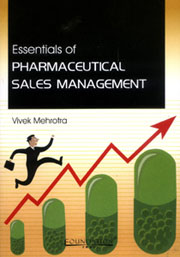Book contents
- Frontmatter
- Contents
- Acknowledgements
- Introduction
- 1 Role
- 2 Performance Management
- 3 Territory and Market Knowledge
- 4 Joint Fieldwork
- 5 On-the-job Training
- 6 Managing Key Customers
- 7 Development of Weak or Underdeveloped Territories
- 8 Performance Counselling
- 9 Management of Vacant Territories
- 10 Induction of a New Medical Representative
- 11 Organising and Conducting Successful Meetings
- 12 Monitoring
- 13 Performance Appraisal
- 14 Managing People Productively
- 15 Interface with Marketing
- Postscript
- Appendices
3 - Territory and Market Knowledge
Published online by Cambridge University Press: 26 October 2011
- Frontmatter
- Contents
- Acknowledgements
- Introduction
- 1 Role
- 2 Performance Management
- 3 Territory and Market Knowledge
- 4 Joint Fieldwork
- 5 On-the-job Training
- 6 Managing Key Customers
- 7 Development of Weak or Underdeveloped Territories
- 8 Performance Counselling
- 9 Management of Vacant Territories
- 10 Induction of a New Medical Representative
- 11 Organising and Conducting Successful Meetings
- 12 Monitoring
- 13 Performance Appraisal
- 14 Managing People Productively
- 15 Interface with Marketing
- Postscript
- Appendices
Summary
Territory is the geographical expression of a predetermined sales plan. It is a part of the total market that exists at a given place. It includes the existing as well as the prospective customer base (doctors, chemists, stockists and hospitals). The territories are designed keeping in view the business requirements of the organisation. You might have been given a sales target of just Rs. 2 to 3 lakhs per territory. However, if you look at the potential of each territory, you will be surprised to know that it ranges from Rs. 50 to 60 lakhs or even more. The one who exploits the potential market will be the winner. Hence, your success will depend upon how accurately you assess the potential of each territory and exploit it.
To do so, it is important for you to have a thorough knowledge of each territory. This will help you manage your territories effectively.
You must have the following information about each of your territories:
Population of Each Town within the Territory
The population of a town gives you the total consumer base (patients) in that town. While planning budgets for the future, or while analysing your sales figures, use the population figures as the point of reference. In addition, the religious composition will help you to estimate the sales of different products at different times. For example, during Ramzan, Muslims observe fast. During these days, it can be observed that the sales of liquid concentrates of food drinks go up in areas where there is a substantial Muslim population.
- Type
- Chapter
- Information
- Essentials of Pharmaceutical Sales Management , pp. 26 - 39Publisher: Foundation BooksPrint publication year: 2007



